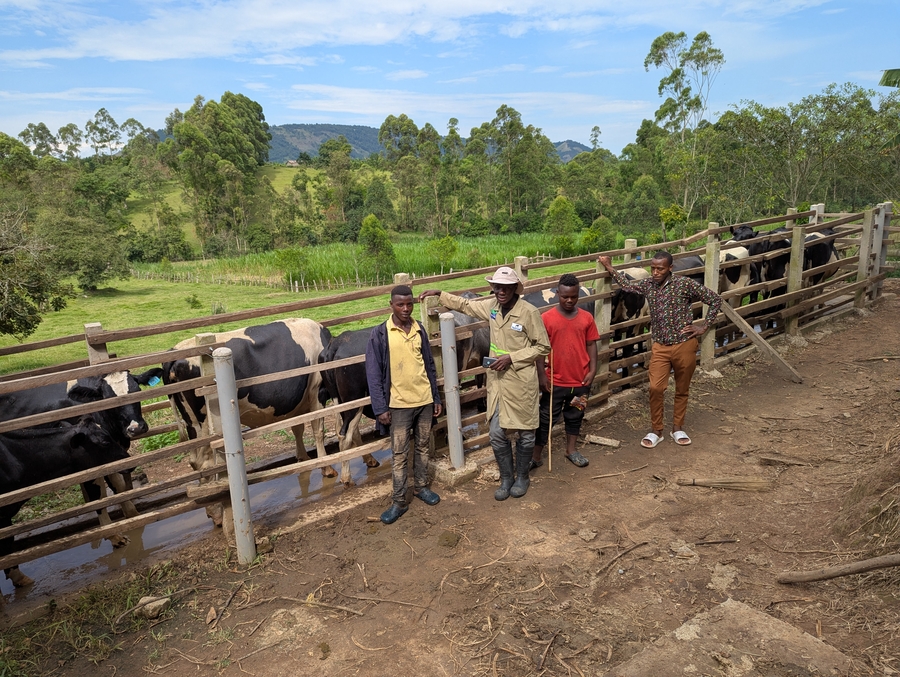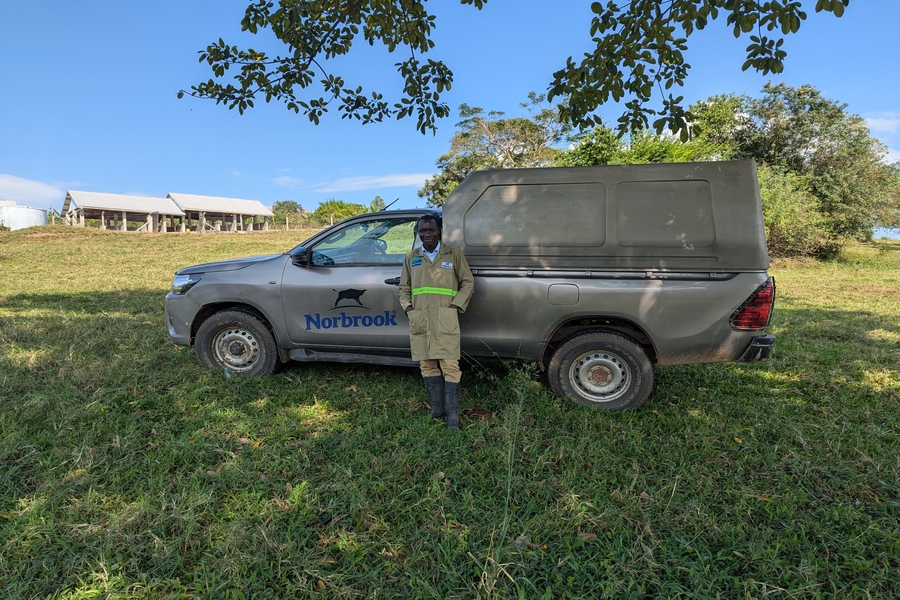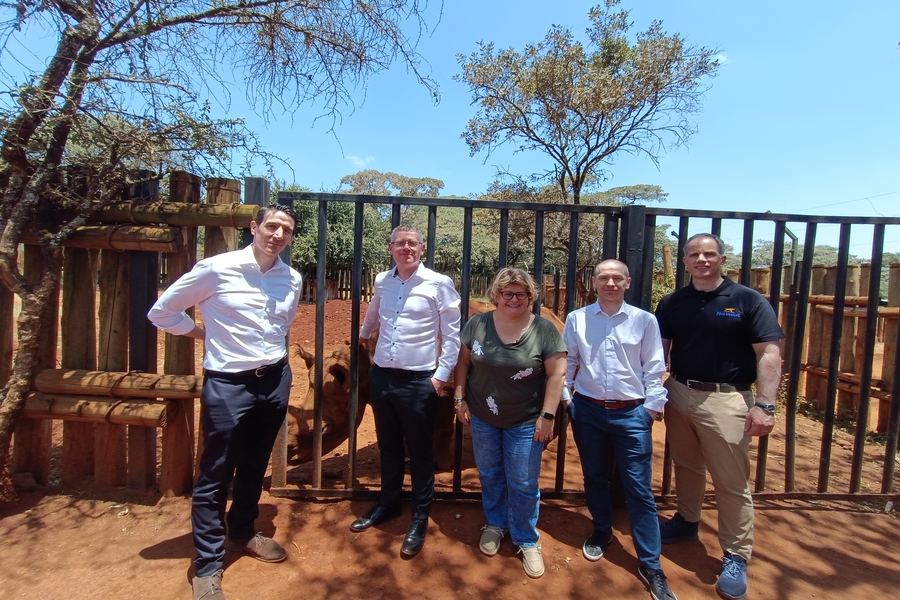Dr. Jonathan Atutambiire was a previous recipient of a 'Top Performing Student' award from Norbrook. Today, he works for Norbrook as a veterinary expert in the field. Learn more about his career journey here.
What job did you want to do when you grew up?!
I wanted to be a medical doctor, to treat humans and save lives.
Why did you decide to pursue a career in veterinary medicine?
As I was passionate about being a doctor, I was driven towards performing well in class so that I would be accepted in medical school. However, I also included Veterinary Medicine as one of my college choices.
Tell us about a little about college life in Kampala, Uganda.
Post secondary Education, I was admitted to Makerere University Kampala, the oldest and most prestigious university in Uganda to pursue a degree in Veterinary Medicine (BVM). I undertook five years of dedicated study and graduated with a bachelor’s degree of Veterinary Medicine.
At vet school, we started out with 88 students but many of my classmates dropped out during the 5-year journey for a range of reasons such as the intensity of the course, tuition fees and grades. The veterinary training at college was structured into theory, practical sessions and field-based training (for Apiary, wildlife, aquaculture, small and large animal practice & husbandry). The majority of clinical years were made up of ambulatory clinics and farm/field practice for diagnosis, treatment, follow-up management and examination of animals, study was summed up by undergraduate dissertation in a subject of one’s choice.
In my second year I represented the biggest student society in college, the Makerere University Veterinary Students Association (MVSA) on the college academic board.
You are now employed by Norbrook as a vet. What did you know about Norbrook before you took the job?
While at the Vet school, clinical practice usually involved the use of veterinary drugs to treat diseases or perform post-operation treatment. The majority of such drugs in the college pharmacy were Norbrook brands. I also got to know Norbrook at the university events involving college associations. When I won an award for being a top performing student, I was prompted to find out more about Norbrook.
What does your typical day look like?
I start my day at about 6 AM, usually for pre-planned activities, including assisting farmers to manage dip tanks, monitoring acaricide concentration levels, replenishments, recharging and boosting. During my daily engagements with farmers, I harmonize deworming schedules and offer technical advice on rational and correct drug-use.
What does a typical farm in Uganda look?
The livestock farming sector in rural Uganda is quite diverse. There are many subsistence producers where families own one or two cows. In contrast, there are some rural farms with up to 5,000 cattle where workers are employed to manage the farm.

What issues do farmers in Uganda face on a daily basis?
Common diseases include Tick borne (East coast fever, anaplasmosis, cowdriosis and babesiosis), and soil borne, worm infestation and transboundary animal diseases like PPR, FMD and LSD. In addition, farmers face challenges with acaricide, antimicrobial and anthelmintic resistance.
What advice would you give to people considering a career in veterinary medicine?
Be passionate! Be committed to the pursuit of this passion because it’s a highly demanding and challenging path to take but also very rewarding.











